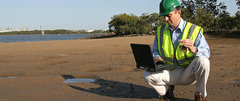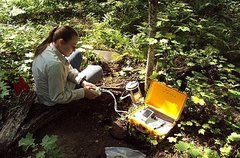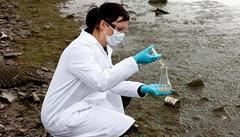Processing Request...
Processing Request...


Actuaries analyze the financial costs of risk and uncertainty. They use mathematics, statistics, and financial theory to assess the risk that an event will occur and they help businesses and clients develop policies that minimize the cost of that risk. Actuaries’ work is essential to the insurance industry.
了解更多

Agricultural engineers—also known as biological and agricultural engineers—work on a variety of activities. These activities range from aquaculture (raising food, such as fish, that thrive in water) to land farming to forestry; from developing biofuels to improving conservation; from planning animal environments to finding better ways to process food.
了解更多

Agricultural and food scientists work to ensure that agricultural establishments are productive and food is safe.
了解更多

Airline and commercial pilots fly and navigate airplanes, helicopters, and other aircraft. Airline pilots fly for airlines that transport people and cargo on a fixed schedule. Commercial pilots fly aircraft for other reasons, such as charter flights, rescue operations, firefighting, aerial photography, and aerial application, also known as crop dusting.
了解更多

Architects plan and design houses, office buildings, and other structures.
了解更多

Biochemists and biophysicists study the chemical and physical principles of living things and of biological processes, such as cell development, growth, and heredity.
了解更多

Chemists and materials scientists study substances at the atomic and molecular levels and the ways in which substances react with each other. They use their knowledge to develop new and improved products and to test the quality of manufactured goods.
了解更多

Conservation scientists and foresters manage overall land quality of forests, parks, rangelands, and other natural resources.
了解更多

Hydrologists study how water moves across and through the Earth’s crust. They can use their expertise to solve problems in the areas of water quality or availability.
了解更多

Mathematicians use advanced mathematics to develop and understand mathematical principles, analyze data, and solve real-world problems.
了解更多

Microbiologists study the growth, development, and other characteristics of microscopic organisms such as bacteria, algae, and fungi.
了解更多

Physicists and astronomers study the ways in which various forms of matter and energy interact. Theoretical physicists and astronomers may study the nature of time or the origin of the universe. Physicists and astronomers in applied fields may develop new military technologies or new sources of energy, or monitor space debris that could endanger satellites.
了解更多

Statisticians use statistical methods to collect and analyze data and help solve real-world problems in business, engineering, the sciences, or other fields.
了解更多

Urban and regional planners develop plans and programs for the use of land. Their plans help create communities, accommodate population growth, and revitalize physical facilities in towns, cities, counties, and metropolitan areas.
了解更多